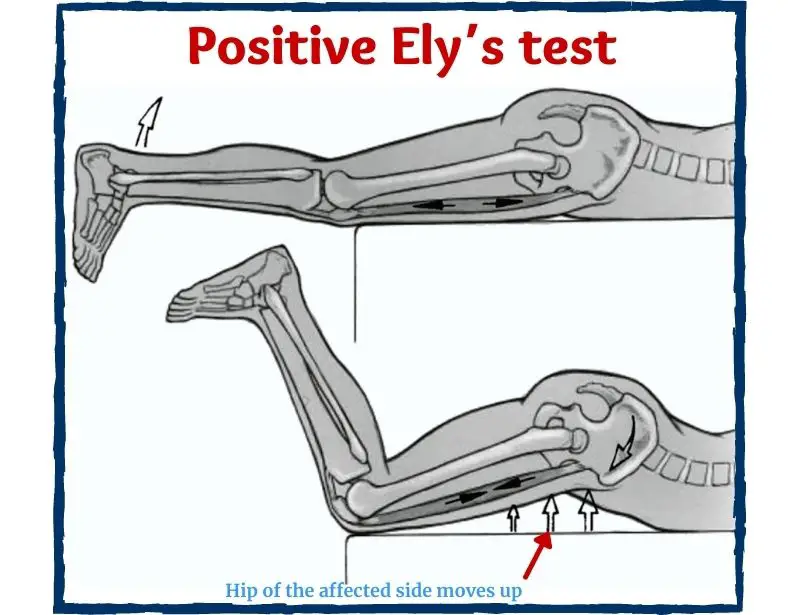Ely’s test
Ely’s test or Duncan-Ely test is an orthopedic screening tool used to identify rectus femoris dysfunction in clinical practice.
The rectus femoris is one of the quadriceps muscles located in the superior, anterior middle compartment of the thigh. It is also the most superficial muscle that extends across the hips and knees.
Functions of the rectus femoris include the extension of the leg from the knee joint and flexion of the hip joint.
Spasticity and contracture of the rectus femoris muscle tend to force an anterior pelvic tilt and hyperextension of the knee. This causes strain on the anterior cruciate ligament (ACL) and posterior cruciate ligament (PCL) of the knee. Also, it affects other muscles and connective tissues.
The rectus femoris muscle is very easily injured during intensive exercises, sports, and trauma. The injury may be just a strain or a tear. Patients experience moderate to intolerably severe pain depending on the type of injury.
In the case of rectus femoris muscle strain, the patient usually presents with groin or hip pain along with swelling of the affected area.
In addition, spasticity of the rectus femoris is the main cause of stiff knee gait in children with cerebral palsy.
How to perform Ely’s test
To perform Ely’s test:
- Position the patient comfortably in prone position
- Then passively bend the knee with a rapid motion towards the buttocks, compare both sides.
- Hip of the affected side will slightly move upwards and the patient may experience pain or discomfort. Also the heel won’t touch the buttock.
- With normal rectus femoris muscle the hip will not move upward and the patient remains comfortable during assessment.

Positive Ely’s test
A positive Ely’s test indicates femoral nerve irritation, contracture, and spasticity (abnormally stiff or increased muscle tone) of the rectus femoris muscle.
According to a study Ely’s test has 91 to 98 percent positive predictive value. This means a positive Ely’s test is a strong indicator presence of rectus femoris muscle spasticity.




